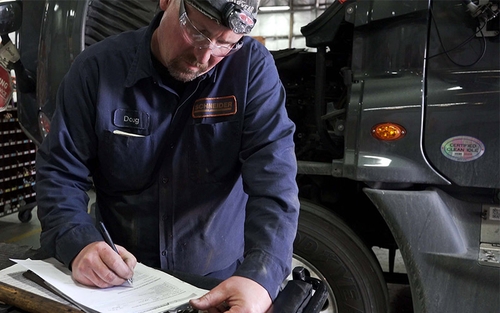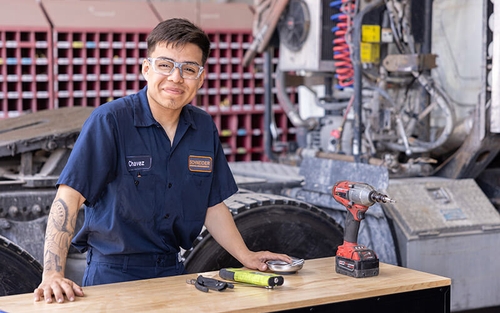If you're thinking about becoming a diesel technician, you're probably wondering, 'Do diesel technicians need a Commercial Driver's License (CDL) in order to get hired and work in a shop?'
While diesel technicians repair Commercial Motor Vehicles (CMVs) that require the drivers of them to have either a Class A CDL (semi-trucks) or a Class B CDL (straight trucks, passenger buses, dump trucks, etc.), most diesel technicians do not need to have either type of CDL.
This is because driving a CMV is typically not part of a diesel technician's overall responsibilities.
Why would a diesel technician need a CDL?
According to the Federal Motor Carrier Safety Administration, a diesel technician would need to get a CDL if their employer required them to test drive CMVs on public roads or highways following repairs.
A diesel technician can test drive CMVs only on private property if they do not have a CDL.
Benefits of a diesel technician having a CDL
Although having a CDL is not a requirement at most shops, there are some benefits of a diesel technician having one, including:
- They can test drive CMVs on public roadways after making repairs – they don’t have to wait for the driver to make sure the repairs were successful.
- They have a more versatile resume.
- If they are looking for a career change, they could quickly start a new one as a truck driver.
Drawbacks of a diesel technician having a CDL
Along with the benefits, there are a few drawbacks to consider if you’re thinking about getting a CDL as a diesel technician, including:
- They must pass a DOT physical each year in order to re-validate their CDL.
- They most-likely will not receive a higher salary because they have a CDL.
So, what does someone need to become a diesel technician?
Although you don't need to go to truck driving school and obtain a CDL in order to become a diesel technician, you should consider getting a diesel tech degree by going to a technical college.
While having a college degree isn't a must-have requirement at all companies, it is typically still encouraged, and you'll often receive a higher starting pay if you have one.






